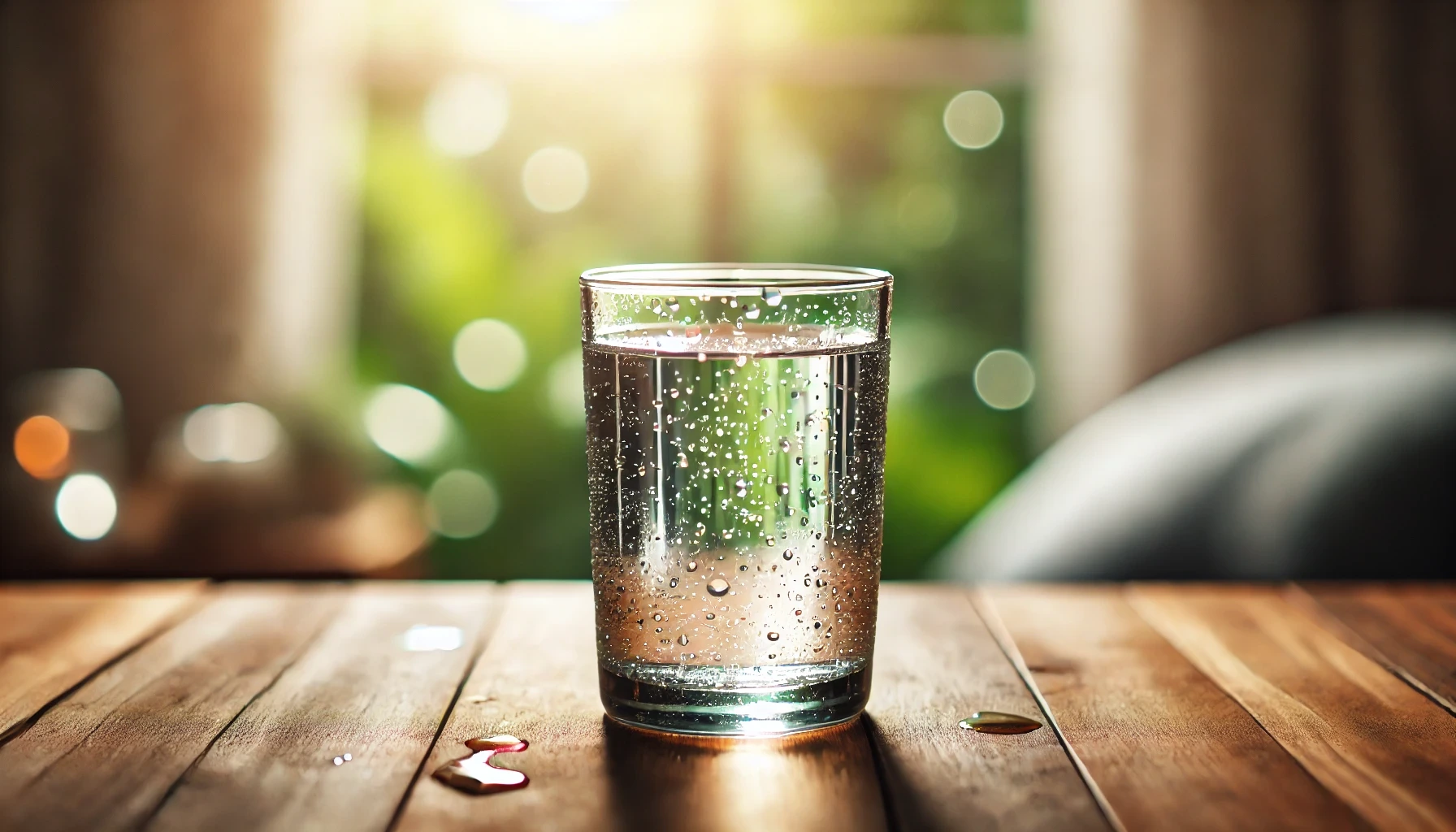Water is essential to human life, yet many people overlook its importance. Drinking enough water daily is crucial for maintaining overall health and well-being. This article will explore the numerous benefits of drinking water every day, highlighting its impact on various aspects of health, backed by scientific evidence.
We will also include tables, bullet points, and a pros and cons section to provide a comprehensive understanding of why hydration should be a priority in our daily lives.
1. Importance of Hydration
Hydration refers to the process of maintaining an adequate level of water in the body. The human body is composed of approximately 60% water, which plays a vital role in various physiological functions. Daily hydration is crucial for:
- Regulating Body Temperature: Water helps dissipate heat through sweating and respiration.
- Supporting Cellular Functions: Every cell in the body relies on water to function optimally.
- Aiding Digestion and Nutrient Absorption: Water is necessary for the breakdown and absorption of nutrients from food.
- Maintaining Electrolyte Balance: Water helps regulate the balance of electrolytes, which are essential for nerve and muscle function.
2. Benefits of Drinking Water Daily
Enhances Physical Performance
Hydration is essential for optimal physical performance. Even mild dehydration can significantly impact your athletic performance. Research shows that athletes who maintain proper hydration levels perform better in endurance activities, strength training, and high-intensity sports.
- Reduces fatigue during exercise.
- Improves endurance and stamina.
- Enhances muscle recovery post-exercise.
Effects of Dehydration on Physical Performance
| Level of Dehydration | Effects on Performance |
|---|---|
| 1-2% | Slight decrease in performance, increased fatigue |
| 3-4% | Noticeable impact on endurance and strength |
| 5-6% | Significant decline in performance |
| 7-10% | Severe impairments; risk of heat-related illness |
Promotes Healthy Skin
Drinking adequate water helps maintain skin hydration and elasticity. When dehydrated, the skin can appear more dry and wrinkled. Water aids in flushing out toxins and can help prevent conditions like acne and psoriasis.
- Improves skin texture and appearance.
- Reduces signs of aging, such as wrinkles.
- Helps combat skin disorders by keeping the skin hydrated.
Aids Digestion and Weight Management
Water plays a crucial role in the digestive process. It helps dissolve nutrients, making them easier to absorb. Drinking water before meals can also help control appetite, making it easier to maintain a healthy weight.
- Supports the digestive process and prevents constipation.
- Aids in appetite regulation by promoting a feeling of fullness.
- May increase calorie burning slightly when consumed cold.
Improves Brain Function
Proper hydration is vital for optimal brain function. Dehydration can lead to cognitive decline, affecting focus, mood, and overall mental performance.
- Enhances cognitive performance and concentration.
- Reduces the risk of headaches and migraines.
- Improves mood and reduces fatigue.
Supports Kidney Function
The kidneys play a crucial role in filtering waste products from the blood. Adequate water intake helps the kidneys function effectively and reduces the risk of kidney stones and urinary tract infections.
- Aids in waste removal and prevents kidney stones.
- Dilutes the concentration of urine, reducing the risk of UTIs.
- Helps regulate electrolyte levels in the body.
Regulates Body Temperature
Water helps regulate body temperature through sweating and respiration. Staying hydrated is particularly important during hot weather or when engaging in physical activity.
- Prevents overheating during exercise.
- Aids in thermoregulation, keeping the body cool.
- Reduces the risk of heat-related illnesses.
3. Pros and Cons of Drinking Water Daily
While drinking water is generally beneficial, it’s essential to consider both the pros and cons associated with daily water consumption.
Pros
- Promotes overall health: Supports bodily functions, including digestion, circulation, and temperature regulation.
- Boosts energy levels: Helps maintain energy and prevents fatigue.
- Enhances physical performance: Improves endurance and recovery during and after exercise.
- Improves skin health: Keeps the skin hydrated and reduces signs of aging.
- Supports weight management: Can aid in appetite control and metabolism.
Cons
- Overhydration risks: Drinking excessive amounts of water can lead to water intoxication, causing electrolyte imbalances.
- Frequent urination: Increased water intake can lead to more frequent trips to the restroom, which may be inconvenient.
- Possible digestive issues: Drinking too much water during meals can dilute digestive enzymes, potentially affecting digestion.
4. Recommended Daily Water Intake
The amount of water an individual needs can vary based on factors such as age, sex, weight, activity level, and climate. However, general guidelines suggest:
- Men: Approximately 3.7 liters (125 ounces) of total water per day from all beverages and foods.
- Women: Approximately 2.7 liters (91 ounces) of total water per day from all beverages and foods.
Recommended Daily Water Intake
| Gender | Total Water Intake (Liters) | Total Water Intake (Ounces) |
|---|---|---|
| Men | 3.7 | 125 |
| Women | 2.7 | 91 |
Factors Influencing Water Needs
- Activity Level: Active individuals may require more water to stay hydrated.
- Climate: Hot and humid conditions increase the need for hydration.
- Health Status: Illness or health conditions may require adjusted fluid intake.
- Diet: Consuming foods with high water content can contribute to hydration.
5. Tips for Staying Hydrated
To ensure adequate hydration, consider the following tips:
- Carry a water bottle: Keep a reusable water bottle with you to encourage regular drinking.
- Set reminders: Use smartphone apps or alarms to remind yourself to drink water throughout the day.
- Infuse your water: Add fruits, herbs, or vegetables for added flavor and nutrients.
- Drink before meals: Consuming a glass of water before meals can help control appetite and improve digestion.
- Monitor urine color: Light yellow urine typically indicates good hydration levels, while dark yellow may suggest dehydration.
6. Conclusion
Drinking water every day is essential for maintaining overall health and well-being. The numerous benefits of hydration range from enhancing physical performance to supporting healthy skin and brain function. While the importance of adequate water intake cannot be overstated, it’s also crucial to strike a balance, avoiding both dehydration and overhydration.
By making a conscious effort to drink water regularly, individuals can improve their quality of life and promote better health outcomes. Remember, hydration is not just about quenching thirst; it’s about sustaining life and ensuring that every bodily function operates smoothly.
Final Thoughts
Embrace the habit of drinking water daily, and you will reap the countless rewards it offers. Whether you’re an athlete, a busy professional, or someone looking to improve your health, hydration should be a priority in your daily routine. Make a commitment to yourself to stay hydrated, and you’ll likely notice the positive changes in your body and mind.
By understanding the essential role of water in our lives and implementing strategies to stay hydrated, we can take significant steps toward achieving optimal health and well-being.

